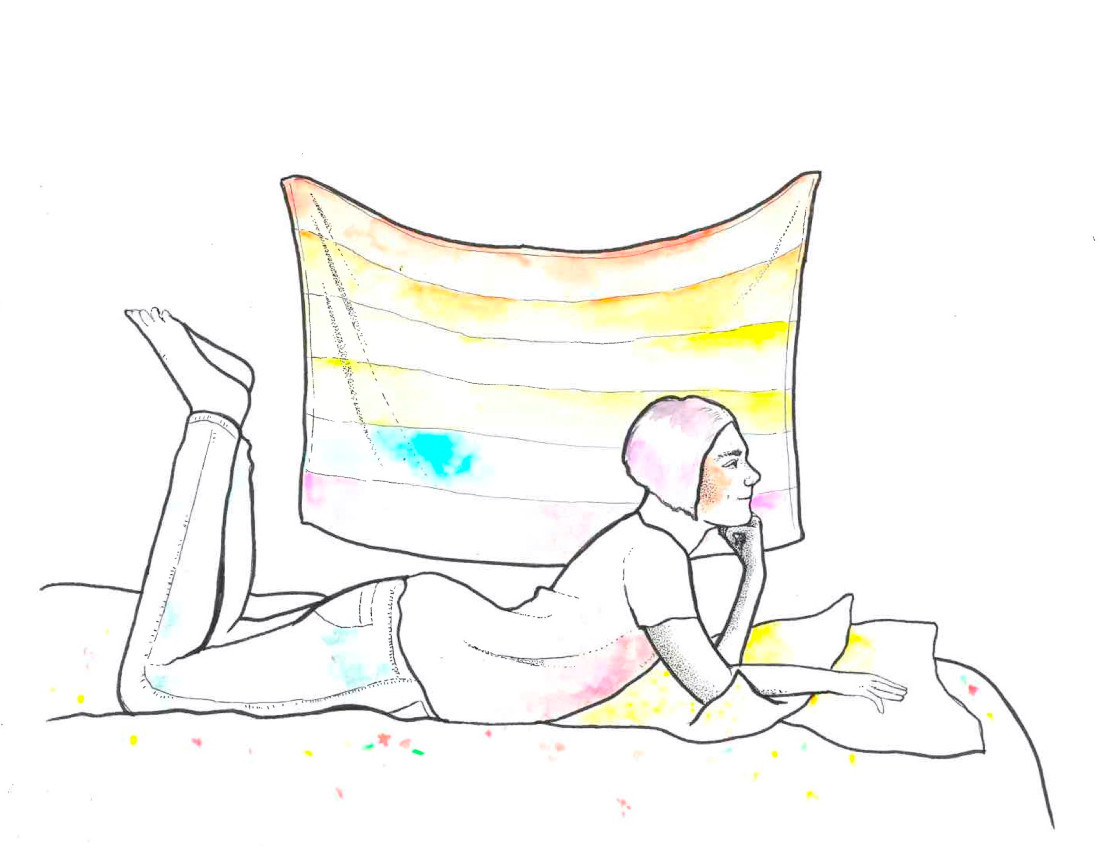Before my obituary
Coming out to be recognized, remembered and immortalized
As the family’s resident copy editor, I was tasked with proofreading my grandfather’s obituary before publication. What should have taken a lunch break stretched into a weeklong project, as relatives chimed in with additions, revisited anecdotes and questioned my capitalization choices – all things I should have expected from fellow storytellers.
Hours of work, phone calls and fact-checking Google searches later, someone pressed “send.” I opened a book (well, scrolled through my browser tabs to a digital copy of It Was Vulgar and It Was Beautiful) and serendipitously read a quote attributed to activist Richard Elovich:
“I didn’t want people to learn that I was queer from my obituary.”
I don’t equate my experiences with Elovich’s at the height of the AIDS epidemic. Still, this got me thinking.
Perhaps it’s natural to contemplate how you want to be remembered while memorializing someone else. While searching a box of papers for my grandfather’s will, I was overwhelmed by how much I didn’t know.
I was elated but unsurprised when I found a photo of him onstage in full drag. His gender-bending Cinderella performance had been an often-repeated part of family lore since before I was born. The box held thank-you notes, letters from government officials, copies of elementary-school report cards, the meticulously collected detritus of an octogenarian life.
I knew my grandfather was a poet, a historian, a chemist. Somehow, despite my decade working in journalism, I never knew that he, too, wrote for a newspaper. I forgot his career as a politician, his interest in photography, his flag collection.
While reworking his obituary and sorting through that single time capsule of a box, I learned more about my grandfather than I could have expected. I haven’t yet looked through his writings, but they’ll likely reveal intimate emotions, experiences and beliefs he wouldn’t have divulged to a grandchild.
I can’t be the only writer in the family who expresses themselves more fully on the page. There’s safety in jotting down thoughts on a blank document or across a stray piece of paper. There’s a chance no one will consume my words – but if they do, it likely won’t be while we make eye contact.
That’s partially why I chose to come out online, during yet another wave of pandemic-induced restrictions. It was a simple Instagram caption about my updated pronouns. Then another, more than a year later, proclaiming the sexual orientation I had first, secretly claimed at six years old.
Both times, I turned my notifications off and my phone over. I readied myself for judgment, ridicule, prying questions. There was, later, a little of each. Notably, though, there was nonchalance. Many of the people closest to me already knew. Others either speculated about my identities or didn’t care.
Regardless, it was freeing. Yes, I came out for myself, as the expression goes, but it was also for external recognition. I wanted people to know this part of me. I revelled in finally, fully being seen. This was tangible (well, online) proof that I existed in my sexual orientation, in my gender identities somewhere beyond my own mind.
Years down the line, when family members gather and argue over my obituary, I hope someone recognizes, remembers and immortalizes these parts of me. My story wouldn’t be complete without them.
A former sports broadcaster, Danielle Doiron is now a writer, editor and educator. Find them in Winnipeg, Philadelphia and, occasionally, on the airwaves.
Published in Volume 77, Number 22 of The Uniter (March 16, 2023)








